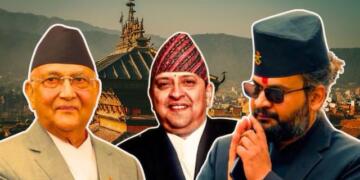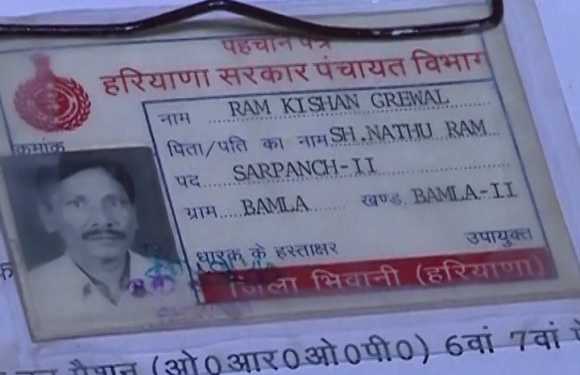One can feel nothing but distress and anguish upon the suicide of Ex-serviceman Ram Kishan Grewal. Grewal, who had served in the army for 30 years committed suicide, allegedly over the issue of One Rank One Pension scheme. Even before anybody could analyze the grievances of Grewal that prompted him to take such an extreme step, politics broke loose on the streets of the national capital. In a matter of minutes, the mainstream media was airing reports of Rahul Gandhi being detained and of AAP protestors flooding the streets. Amidst statements by opposition leaders blaming Modi and his sarkar and ‘intellectuals’ expressing their fear of democracy being subverted as opposition leaders were not being allowed to meet the soldier’s family, the issue for which 70 years old Grewal had ended his life was quietly set aside. Facts of the matter were drowned by the din of opposition leaders, ever-willing to play politics over dead bodies. The only pertinent question to be asked at this stage is why did a an ex-serviceman have to end his life over a matter that has been deemed ‘implemented’ by the government. The insinuation that follows is the government is lying through its teeth over the OROP issue.
To understand the facts better, consider the following-
- OROP was set aside by the Indira Gandhi government, two years after the Bangladesh Liberation war, without consulting the forces. A bad decision was made worse by Rajiv Gandhi government that implemented Rank Pay and reduced the basic pay of several ranks in the armed forces. As if the damage done so far was not enough, Manmohan Singh/Sonia Gandhi government, discarded Rank Pay and introduced Grade Pay, which did not resolve the asymmetries brought in due to abolition of OROP and Rank Pay but simply reinforced them. An attempt to take the ex-servicemen for a ride was made in Feb’14 when the Finance Minister during the budget presentation announced that the government has given an in-principle approval for OROP. However, Defence Ministry never raised a demand note for the same.
- Implementation of OROP was one of the poll promises of Narendra Modi in the run up to 2014 elections. In his first budget speech, Arun Jaitley re-affirmed the government’s promise to implement OROP. However, it would take more than 2 years for OROP to be officially announced as implemented. In the meanwhile, the ex-servicemen grew impatient and even disillusioned with what they perceived was the government’s intransigence over the issue.
- When the government finally introduced its plan on the OROP, Ex-servicemen were bitterly divided over the final outcome. While many rejoiced on past wrongs being finally corrected, many others pointed out that the government’s scheme had anomalies and did not meet all their demands. Consequently, protests by ex-servicemen continued unabated. Political parties also baked their bread and queered the pitch further.
The government’s scheme on OROP differs from the demands of ex-servicemen in the following respects-
- Government’s scheme is effective July’14, while ex-servicemen (ESM) demand April’14 as the date of implementation. Government used 2013 as the base year while ESM are demanding 2014 as the base year.
- The government has proposed a review every 5 years, while ESM demand a review every year, subsequently revised to every two years. This seems to be a big sticking point
- There was initially some confusion on OROP applicability as the government seemed to indicate that those opting for Voluntary retirement would not be eligible for OROP. Government subsequently indicated that only those who had retired before OROP implemention would be eligible.
In view of continued protests, the government constituted a one-member judicial committee, whose reports have been presented to the government and are being studied as of now. There was dissonance between the government and the ESMs on the constitution of the judicial committe as well. The ESMs wanted a 5 member committee against the one member committee constituted by the government.
Long story short, the issue of OROP which has been raging for over 43 years continues to blaze even after the announcement of implementation of OROP.
The suicide by Ex-Serviceman, Grewal will only add fuel to what is already a turbulent fire. Politicians of all hues and colours have now descended upon the body of Grewal, devouring it like vultures, for their petty political gains. Just as Kejriwal and Rahul Gandhi milked Akhlaque’s murder for their ‘Intolerant India’ campaign, just as they played dirty politics over the body of the farmer who hanged himself in an AAP rally, just as they have been lionizing the dead SIMI terrorists to get Muslim votes, so they shall profit from Grewal’s suicide. For them, Grewal is another pawn to use in their fight against Modi.
Even though it was Rahul Gandhi’s illustrious family that wronged the ex-servicemen, he seeks to turn their savior. And as far as Kejriwal is concerned, the lesser said the better. Kejriwal and his team will do anything to remain in the public limelight.
While Parrikar has tweeted condolences for Grewal and his family, it will not suffice at all. Grewal’s suicide also points towards mismanagement of the OROP issue by the government. The government can ill-afford to keep an issue like OROP simmering for so long. The need of the hour is to open channels of communication with ESM protestors, re-assure them of government’s intentions and get the deal on OROP moving. Our Ex-Servicemen deserve all the gratitude and no politics for their service to the nation.
http://www.telegraphindia.com/1161102/jsp/frontpage/story_116998.jsp#.WBni0fl97IU


























